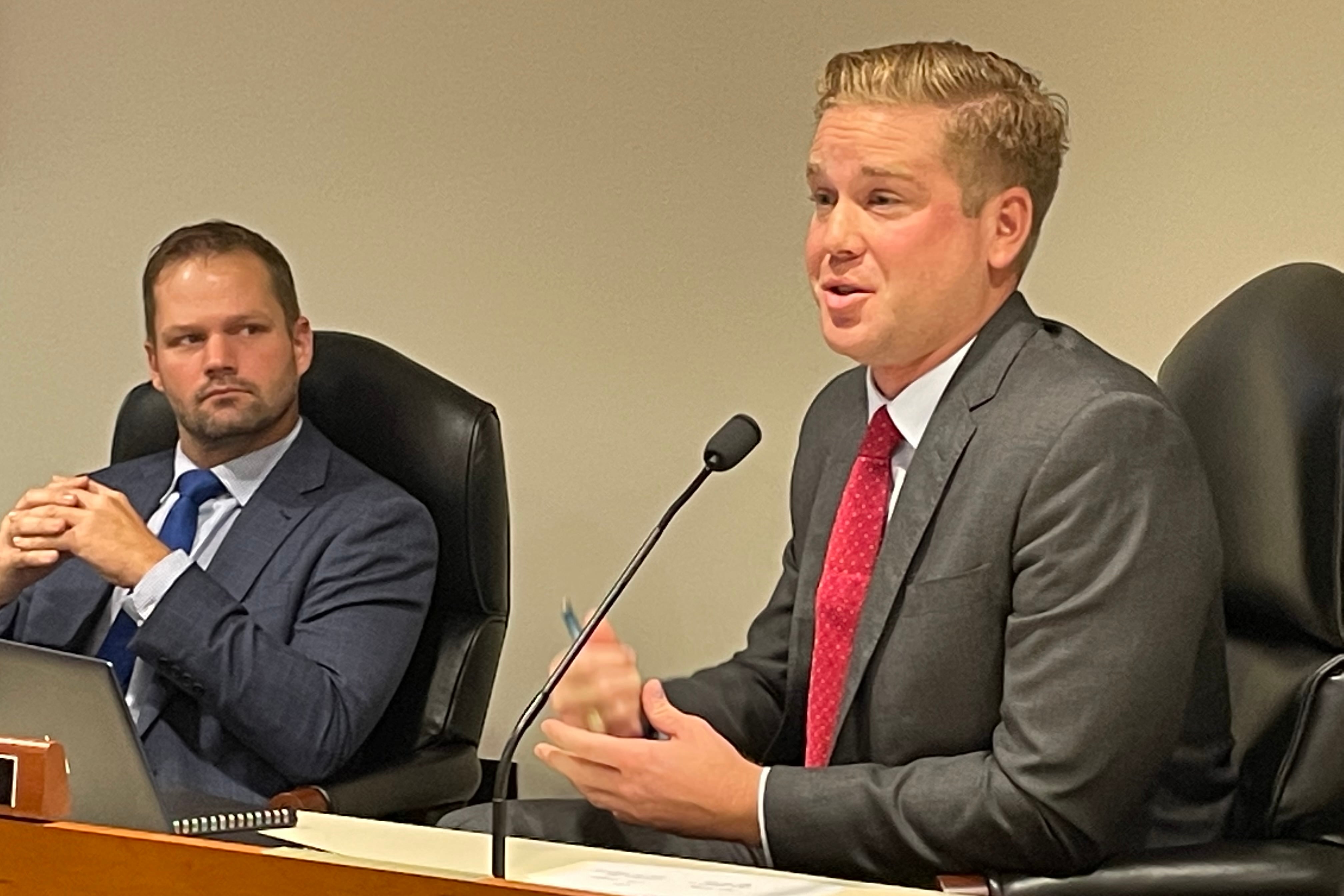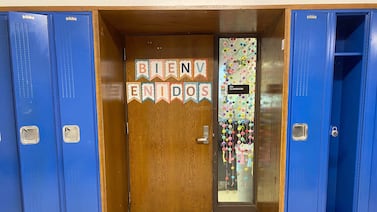The Michigan House dove into the national debate over critical race theory on Tuesday when the GOP forced through a bill sharply restricting school lessons that promote race or gender stereotyping.
The bill passed 55-0 Tuesday with Democrats refusing to vote after Republican Rep. Brad Paquette of Niles, who chaired the contentious session, cut off debate while opponents of the bill still wanted to speak.
It now heads to the Republican-controlled Senate. If the Senate approves the bill, Democratic Gov. Gretchen Whitmer is expected to veto it.
The bill doesn’t specifically mention critical race theory, a college-level academic framework that explores the lingering effects of centuries of white supremacy and racist policies that disadvantage people of color, but its intent is clear to both opponents and to the bill’s sponsor, Port Huron Republican Andrew Beeler. Beeler said he was careful not to invoke the term that conservatives across the country have used to condemn curricula they deem too liberal.
“The reason I don’t use that language in this bill is because it means too many different things to too many different people,” he said.
CRT isn’t taught in Michigan schools, but Rep. John Damoose of Harbor Springs said constituents have told him their children have been given assignments asking them to write about “how to become less white.”
Beeler said his legislation would prohibit public schools from teaching “anything that could be understood as race or gender stereotyping.” It prescribes no penalties. The bill would specifically prohibit teaching the following:
- That all members of a racial, ethnic, or gender group have the same qualities and beliefs.
- That actions and beliefs are caused by racial or gender identity.
- That people are born racist or sexist “by accident of their race or gender.”
- That people bear collective guilt for historical wrongs committed by their race or gender.
- That norms and practices of a racial, ethnic, or gender group are flawed.
- That racism or sexism are inherent in people from particular racial, ethnic, or gender groups.
- That a racial, ethnic, or gender group is in need of “deconstruction, elimination, or criticism.”
- That actions of an individual serve as an indictment against the person’s race or gender.
Contentious debate over critical race theory has been spreading throughout the country and widening a political divide over whether racism is embedded in American society.
Michigan Republicans suggest that critical race theory teaches white children that they are inherently oppressors and that children of color are oppressed.
The Michigan Senate is considering separate legislation more directly targeting critical race theory. Under its bill, schools would lose 5% of their funding if educators teach critical race theory, “anti-American” ideas about race, or material from “The 1619 Project,” a New York Times Magazine initiative that ties the growth of the United States to the consequences of slavery and the contributions of Black Americans.
Academics are concerned about the increase in anti-CRT legislation and predict it could have a chilling effect on educators.
“Teachers will be wary to venture into any topic that hasn’t been approved or isn’t exactly on a scripted curriculum. This makes lessons less engaging and relevant, and certainly isn’t the type of teaching that fosters inquiry and deep discussion and examination from multiple perspectives,” said Rebecca Jacobsen, a professor of education policy at Michigan State University.
She said teachers might shy away from discussing race relations or the ways the legacy of racism continues to affect people. That would make social studies seem divorced from current events and students’ daily lives, she said.
Correction: A previous version of this story incorrectly said the bill would prohibit teaching that a race, gender or ethnic group is in need of destruction.








